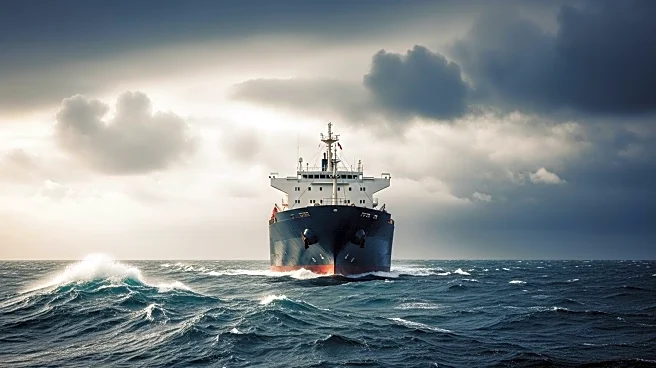What's Happening?
The global ocean shipping industry is navigating a volatile market characterized by geopolitical tensions, shifting trade policies, and tariff uncertainties. Recent U.S. tariffs have impacted demand, leading to a subdued peak season for container shipping. Carriers are adjusting their strategies, including trimming capacity and employing flexible port calls, to manage fluctuating demand and stabilize rates. The industry is also dealing with infrastructure challenges at seaports and the potential overcapacity due to new vessel deliveries. The U.S./China tariff truce extension provides temporary relief, but long-term structural challenges remain.
Why It's Important?
The volatility in the ocean shipping industry has significant implications for global trade and supply chain management. U.S. importers and exporters are directly affected by tariff changes and capacity constraints, which can lead to increased costs and logistical challenges. The industry's response to these pressures, including capacity management and service adjustments, will influence shipping rates and service reliability. The situation highlights the need for strategic planning and risk management in global supply chains, as well as the potential impact of geopolitical developments on international trade.
What's Next?
As the industry adapts to the current market conditions, carriers may continue to implement targeted blank sailings and service modifications to manage capacity. The potential for new tariffs and trade agreements will be closely monitored, as they could further influence demand and shipping patterns. Stakeholders in the shipping industry, including importers, exporters, and logistics providers, will need to remain agile and responsive to ongoing changes in trade policies and market dynamics.
Beyond the Headlines
The ongoing challenges in the ocean shipping industry reflect broader economic and geopolitical shifts, including the impact of trade wars and regulatory changes. The industry's ability to adapt to these changes will be crucial in maintaining global trade flows and economic stability. The situation also underscores the importance of international cooperation and dialogue in addressing trade disputes and fostering a stable economic environment.









